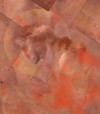
Chapter 31 --To Find The Creator, Forsake All Creatures

| HOME | SUMMA | PRAYERS | FATHERS | CLASSICS | CONTACT |
| CATHOLIC ENCYCLOPEDIA | A | B | C | D | E | F | G | H | I | J | K | L | M | N | O | P | Q | R | S | T | U | V | W | X | Y | Z |
| CATHOLIC SAINTS INDEX | A | B | C | D | E | F | G | H | I | J | K | L | M | N | O | P | Q | R | S | T | U | V | W | X | Y | Z |
| CATHOLIC DICTIONARY | A | B | C | D | E | F | G | H | I | J | K | L | M | N | O | P | Q | R | S | T | U | V | W | X | Y | Z |
 Keep Site Running
Keep Site Running

Chapter 31 --To Find The Creator, Forsake All Creatures |
THE DISCIPLE Copyright ©1999-2023 Wildfire Fellowship, Inc all rights reserved
O LORD, I am in sore need still of greater grace if I am to arrive at the point where no man and no created thing can be an obstacle to me. For as long as anything holds me back, I cannot freely fly to You. He that said "Oh that I had wings like a dove, that I might fly away and be at rest!"[35] desired to fly freely to You. Who is more at rest than he who aims at nothing but God? And who more free than the man who desires nothing on earth?
It is well, then, to pass over all creation, perfectly to abandon self, and to see in ecstasy of mind that You, the Creator of all, have no likeness among all Your creatures, and that unless a man be freed from all creatures, he cannot attend freely to the Divine. The reason why so few contemplative persons are found, is that so few know how to separate themselves entirely from what is transitory and created.
For this, indeed, great grace is needed, grace that will raise the soul and lift it up above itself. Unless a man be elevated in spirit, free from all creatures, and completely united to God, all his knowledge and possessions are of little moment. He who considers anything great except the one, immense, eternal good will long be little and lie groveling on the earth. Whatever is not God is nothing and must be accounted as nothing.
There is great difference between the wisdom of an enlightened and devout man and the learning of a well-read and brilliant scholar, for the knowledge which flows down from divine sources is much nobler than that laboriously acquired by human industry.
Many there are who desire contemplation, but who do not care to do the things which contemplation requires. It is also a great obstacle to be satisfied with externals and sensible things, and to have so little of perfect mortification. I know not what it is, or by what spirit we are led, or to what we pretend -- we who wish to be called spiritual -- that we spend so much labor and even more anxiety on things that are transitory and mean, while we seldom or never advert with full consciousness to our interior concerns.
Alas, after very little recollection we falter, not weighing our deeds by strict examination. We pay no attention to where our affections lie, nor do we deplore the fact that our actions are impure.
Remember that because all flesh had corrupted its course, the great deluge followed. Since, then, our interior affection is corrupt, it must be that the action which follows from it, the index as it were of our lack of inward strength, is also corrupt. Out of a pure heart come the fruits of a good life.
People are wont to ask how much a man has done, but they think little of the virtue with which he acts. They ask: Is he strong? rich? handsome? a good writer? a good singer? or a good worker? They say little, however, about how poor he is in spirit, how patient and meek, how devout and spiritual. Nature looks to his outward appearance; grace turns to his inward being. The one often errs, the other trusts in God and is not deceived.
<|CONTENTS| |NEXT|>